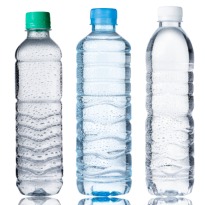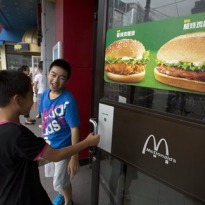Shocking: Over 10,000 Illegal Bottled Water Units in Delhi-NCR

You think bottled water is safe? Well,
think again. Over 10,000 illegal packaged water bottling units are
operating in the National Capital Region, often using the labels of the
64 licensed manufacturers, putting the health of millions of people at
risk, say industry officials. But local health officials seem oblivious
of the danger to people's health and safety.
"It may sound
horrific but only 64 water bottling plants have the licence to supply
packed drinking water in the national capital and the NCR," said Pankaj
Aggarwal, the president of the Bottled Water Processors Association.
"It's a big reason for worry. Despite not getting clearances from the
Bureau of Indian Standard (BIS), supplies from such unlicensed plants is
equal to the quantity of bottles supplied by the licensed plants," he
added.
"Such illegal units are mostly located in slums and
congested bylanes of Delhi, Haryana and Uttar Pradesh. They hardly meet
the standards of water purification, but escape getting checked by
government officials due to their location."
In a recent case,
cockroaches were found in water drums supplied to the headquarters of
the East Delhi Municipal Corp. After a probe, the supplier was found to
be an illegal operator. But the unit could not be traced as there was no
record with the industry association. In another case, a house fly was
found in water supplied to a media organisation in Noida.
"If the
condition of Delhi is like this, then what will be the situation in the
other parts of the country. But I do not have any official data on it.
It is the duty of the Delhi government to submit data of such unlicensed
operators to the central government. Only when we receive such a report
can we frame more stringent policies to stop such malpractices," union
Health Minister Harsh Vardhan said.
North Delhi Municipal Corp.
Mayor Yogender Chandolia had some alarming data. "I believe the number
of unlicensed bottling units in Delhi is over 10,000. There's a shortage
of drinking water in many parts. Operating illegal units is a lucrative
business. We did a survey this year and over 2,000 people were caught
running unlicensed water bottling plants in parts of North Delhi alone.
But no action was taken against them. This has again given them the
freedom to keep running their illegal business."
In fact, the
Delhi High Court asked the government agencies in May 2010 to crack down
on bottling units selling water without a licence and a proper
certification from the BIS. But that hasn't helped, bona fide bottlers
lament.
Aggarwal said "every registered water bottling unit has
to set up a lab for testing the presence of chemicals and microbes.
These reports have to be submitted to the Bureau of Indian Standards
every week. They also have to give water samples to a government lab but
such tests are conducted only on the licensed plants. The unlicensed
plants do not have to undergo any such test. They operate unhindered -
even without proper water purification equipment." Each unit has to pay
an annual fee of Rs.1 lakh.
"The point to be noted is that while
licensed water bottling plants sell around 10,000 of water bottles every
day, the unlicensed bottling plants manage to sell 30,000-40,000
bottles every day."
The association said the past two years
particularly have seen a spurt in illegal bottled water suppliers. They
mostly operate from areas like Arjun Nagar, Dwarka and Jamia Nagar.
These areas account for 50 percent of such units operating in tiny rooms
and hutments. "Being outside the ambit of our association, none of the
stringent government norms apply to them nor do they pay any of the
taxes," said Rakesh Kumar Suri, owner of Diamond Dew, a licensed water
bottling plant in Noida.
He said that besides the poor quality of
water they supply, these unlicensed operators also evade the 15 percent
sales tax which is mandatory. "They also don't get any electricity
bills because of the way they operate in isolated locations."
The
water resources ministry in its latest order has asked all water
bottling plants to get new licences to pump out ground water. However,
the quantum of licence fee is yet to be announced. "The new order is
again going to apply only to the licensed plants. Such policies are
creating impediments in the smooth operations of licensed units," said
Pradeep Kumar, owner of Ocean Blue, a licensed water bottling plant in
Arjun Nagar, in south Delhi.
He said the minimum cost of setting
up a plant is between Rs. 2 crore and Rs. 3 crore, besides high taxes.
"There can be no solution until the government raids such unlicensed
plants and stops unlicensed owners from supplying unpurified water and
putting the life of people in jeopardy."


 You think bottled water is safe? Well,
think again. Over 10,000 illegal packaged water bottling units are
operating in the National Capital Region, often using the labels of the
64 licensed manufacturers, putting the health of millions of people at
risk, say industry officials. But local health officials seem oblivious
of the danger to people's health and safety.
You think bottled water is safe? Well,
think again. Over 10,000 illegal packaged water bottling units are
operating in the National Capital Region, often using the labels of the
64 licensed manufacturers, putting the health of millions of people at
risk, say industry officials. But local health officials seem oblivious
of the danger to people's health and safety. McDonald's said that key global sales
figure fell 3.7 percent in August due to the food-safety scandal in
China.
McDonald's said that key global sales
figure fell 3.7 percent in August due to the food-safety scandal in
China.